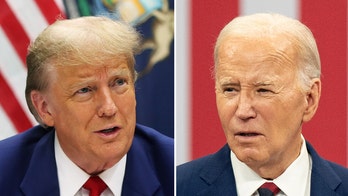Lawmakers on the Senate Finance Committee are considering whether to target insurers who provide top-tier plans as Congress searches for enough revenue to offset the cost of health care reform.
The so-called "Cadillac" health insurance plans come with hefty price tags and generally provide the insured with free rein to skip co-pays and see just about any doctor they like. That has led the Finance Committee, one of five in Congress working on health care reform, to consider taxing them.
"When they were thinking about capping the tax exclusion at $25,000 -- which means I have a health insurance policy that's over $25,000 -- that's worth up to $100 billion (in taxes) over 10 years. That's real," said Sen. Tom Carper, D-Del, a member of the Finance Committee.
But Sen. John Kerry, the main proponent of the tax and a member of the Finance Committee, stepped out of negotiations Wednesday and said the final reform package is still in flux and any new taxes would depend on just how much revenue senators will need to generate to make sure the bill they take to the floor doesn't add to the deficit.
Efforts by lawmakers to find a way to pay for health care reform underscore that cost is the biggest challenge to progress on President Obama's top domestic priority. Republicans and conservative Democrats have opposed the plan because they say it costs too much money.
But it's unclear just how much revenue a tax on top-tier plans would really raise. Some experts estimate less than one half of one percent of all Americans with employer-sponsored health coverage have plans with premiums of $25,000 or more.
"We don't seem to know how many people have Cadillac plans or even very high-cost plans, but we don't think there are very many of them," said Paul Fronstin, a senior research associate with the Employee Benefit Research Institute. "So if there aren't that many plans or people to tax, there isn't that much revenue to generate."
Not all high-end plans belong to bankers and Wall Street executives. In fact, many top premium plans belong to individuals who are older or sick, making the idea of taxing plans strictly on the basis of dollar value somewhat controversial.
"So you'd be taxing people as a result of their health status, as opposed to because they're on a Cadillac plan," Fronstin said.
Union insurance plans are often considered to have Cadillac benefits, but they still average well below $25,000 annually and wouldn't be impacted. Even so, top union leaders say they oppose the plan, believing the tax on insurers will in some way filter down to employees.
Critics of the tax say the entire approach may simply be too flawed to succeed.
"Taxing insurance companies for the benefit package they provide to employees is the same thing as taxing a restaurant if people want to buy steak," said Robert Zirkelbach, a spokesman for the America's Health Insurance Plans, a trade association that represents the health insurance industry. "It's the wrong approach at the wrong time."




